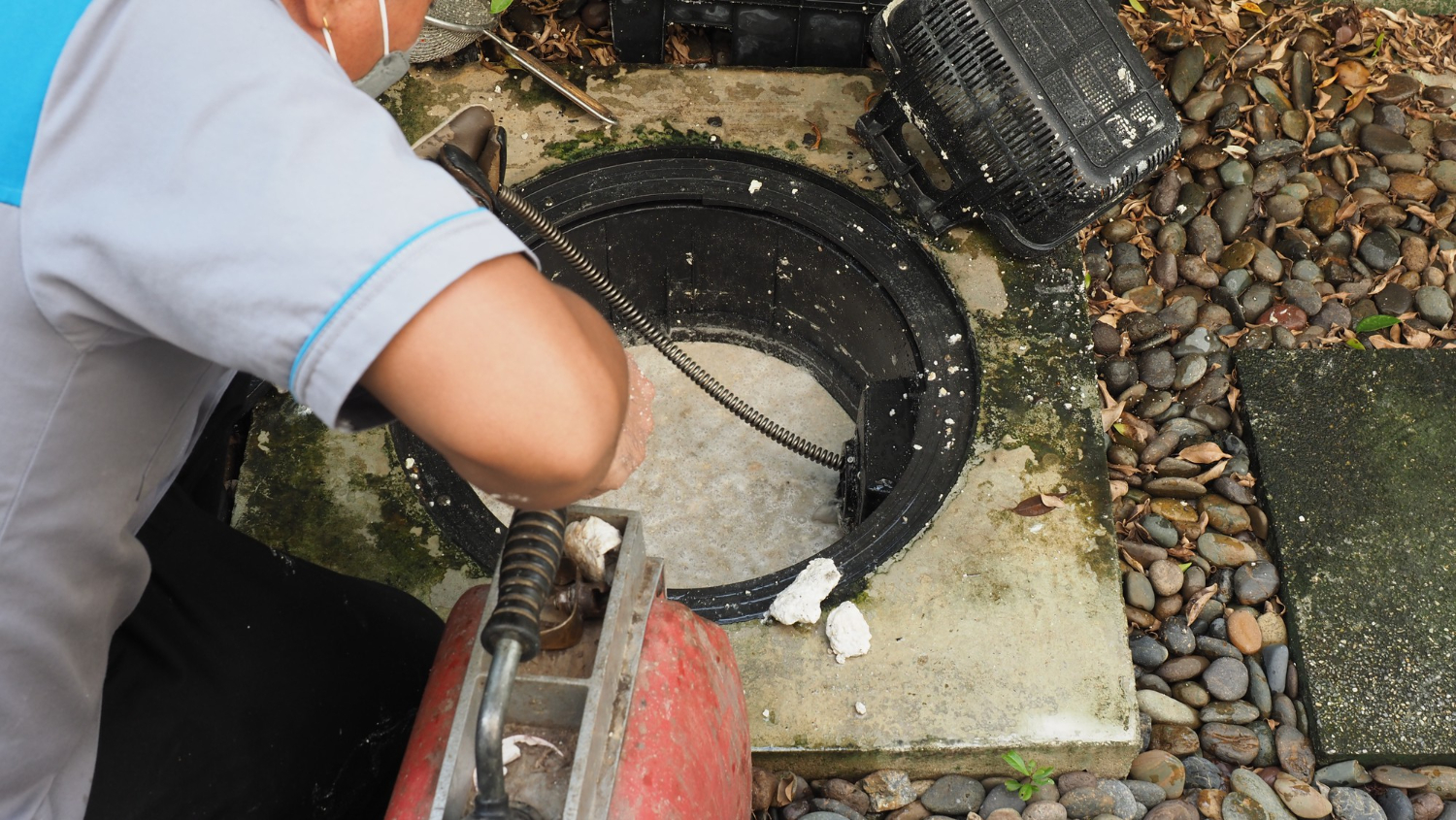WE NOT ONLY PUMP YOUR TANK - WE CLEAN IT! Up to 36 Months Financing Available
Call Septic Blue Now 813-355-9188
It's Easier Schedule Online
WE NOT ONLY PUMP YOUR TANK - WE CLEAN IT! Up to 36 Months Financing Available
Call Septic Blue Now 813-355-9188
It's Easier Schedule Online

If you run a restaurant or commercial kitchen, there’s a part of your plumbing system that’s doing a messy job behind the scenes—your grease trap. It’s easy to overlook, but it plays a significant role in keeping your pipes flowing and your business running smoothly. Septic pumping and grease trap pumping are similar in that they both keep waste from causing big problems. If you’ve ever had your system backed up with grease or sludge, you already know how gross (and expensive) it can get. Septic Blue of Tampa reminds us that ignoring grease trap care is a recipe for disaster. Let’s break down what grease trap pumping is, how it works, and why it's essential for your maintenance to-do list.
A grease trap is a specialized plumbing device that catches fats, oils, and grease—also known as FOG—before they can enter your pipes. It sits between your sinks and your main sewer line. As hot water washes grease down the drain, it cools and thickens in the trap. The grease floats on top, while the cleaner water flows out.
That top layer builds up fast. If it’s not pumped out regularly, the grease hardens and clogs the trap. That’s when backups, bad smells, and plumbing disasters begin.
Grease trap pumping is the process of removing all the built-up fats, oils, and greases (FOG) from your trap. A professional will open the trap, pump out the contents, scrape the sides clean, and ensure everything is working properly. It's kind of like getting an oil change for your car—routine but important.
This is not something you should attempt to do yourself. The equipment is specialized, and if the job is done incorrectly, it can cause serious damage or even pose health risks.
A professional septic company can safely remove the waste, dispose of it properly, and provide you with tips to keep your grease trap in good condition between visits. Septic Blue of Tampa often reminds business owners that regular pumping keeps things running smoother and helps them avoid sudden closures due to plumbing issues.
As a property owner with an onsite wastewater system, you’ve…
Read More+Most homeowners don't think about their septic system until something…
Read More+Grease may look harmless when it’s warm and liquid, but once it cools, it becomes a sticky, smelly mess. Here’s why grease trap pumping really matters:
When your grease trap gets too full, even your septic service can be affected. Grease that escapes the trap can enter your septic system, exacerbating the issue. Regular septic cleaning in Tampa, FL is important, but only if your grease trap is under control.
This depends on your kitchen. A small café might only need pumping every few months, while a busy restaurant may need it every few weeks. The general rule is to pump when the trap is 25% full of FOG. Waiting longer risks clogs, odors, and possible fines.
A trusted septic company can help set the right schedule. They’ll track your usage and let you know when it’s time. Septic Blue of Tampa collaborates with numerous restaurants to develop straightforward maintenance plans that eliminate the guesswork from the process.
Not sure if it’s time to pump? Here are a few red flags:
If you notice any of these signs, don’t wait. It could mean your trap is overdue for a pumping, or worse, something is already clogging your pipes. Contact a septic service professional before the issue becomes much bigger.
It’s not just your kitchen that benefits from regular grease trap pumping. The entire septic system functions more effectively when grease is kept out of the mix. Too much FOG in your septic tank can disrupt the balance and lead to more frequent septic pumping schedules.
That’s why regular pumping, whether it’s for your grease trap or your septic tank, is so important. Keeping one part clean protects the rest. It’s a team effort between your kitchen crew and your septic cleaning provider.
And yes, Septic Blue of Tampa always encourages customers to stay ahead of the mess. Preventing buildup is easier (and cheaper) than fixing a clogged or overflowing trap.
Grease trap pumping might not be the most glamorous task, but it’s one of the most important for your business. Stay ahead of costly plumbing problems by setting up a regular service schedule with a professional septic company.
If your kitchen has been smelling funky or your sinks are draining slowly, it's time to take action. Give your system the care it needs and your business the peace of mind it deserves.
Call a local expert today and keep that grease where it belongs—out of your pipes!